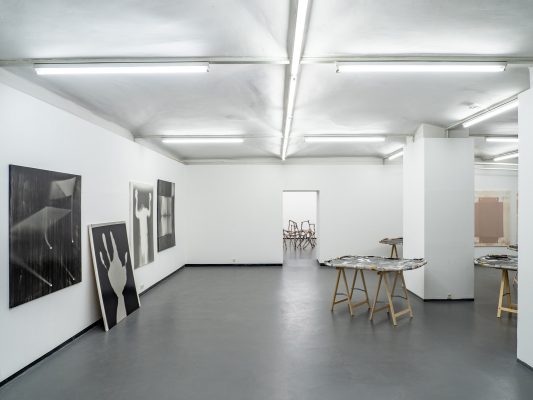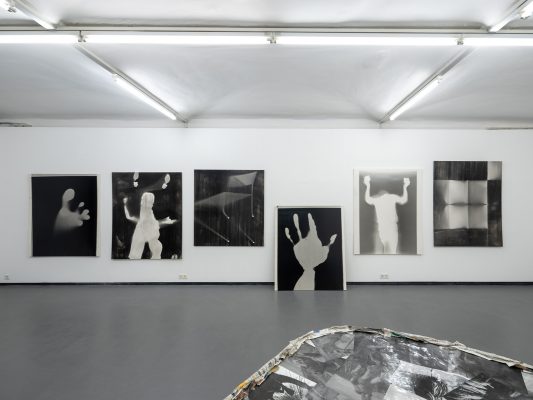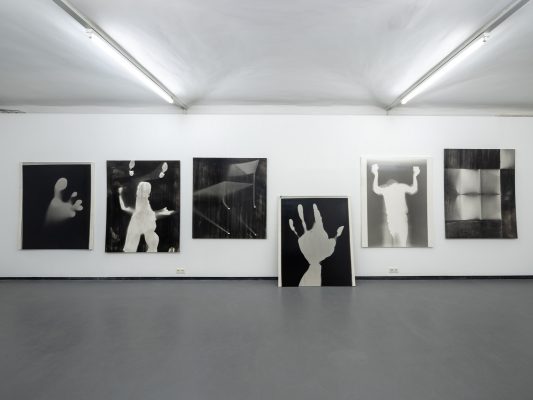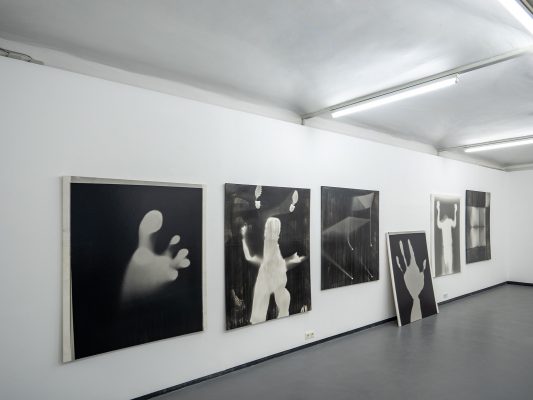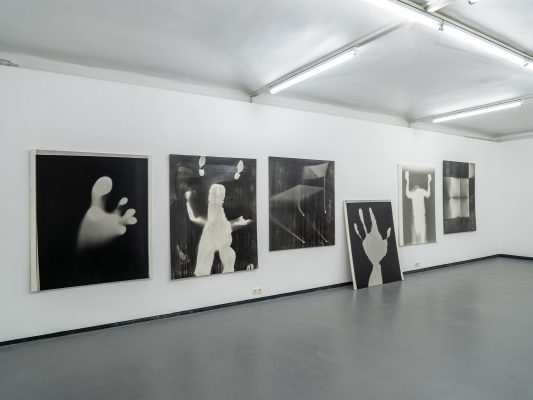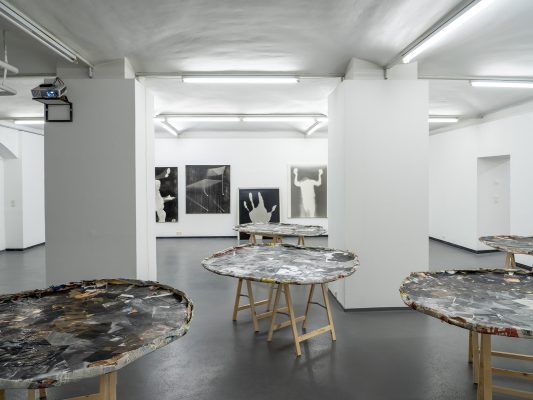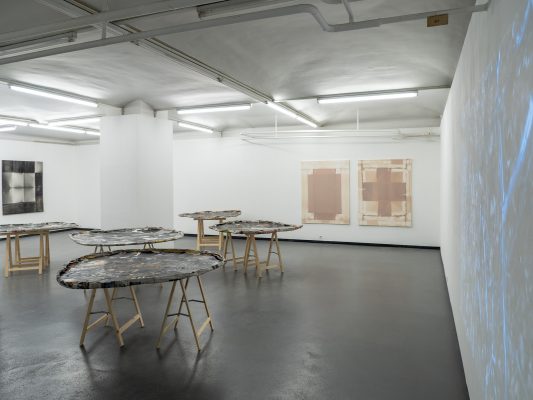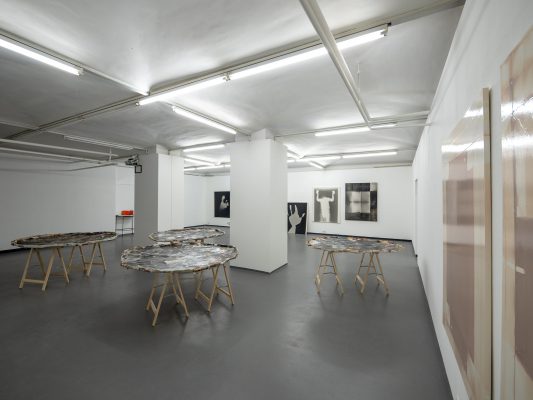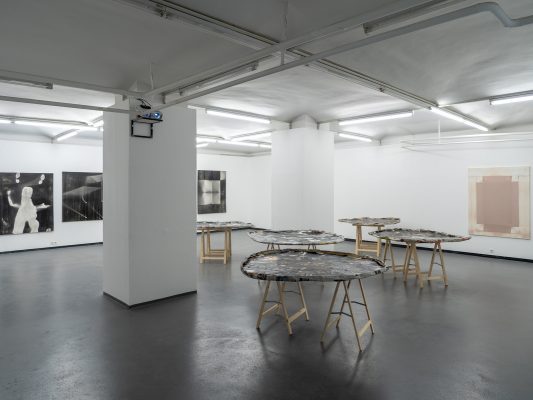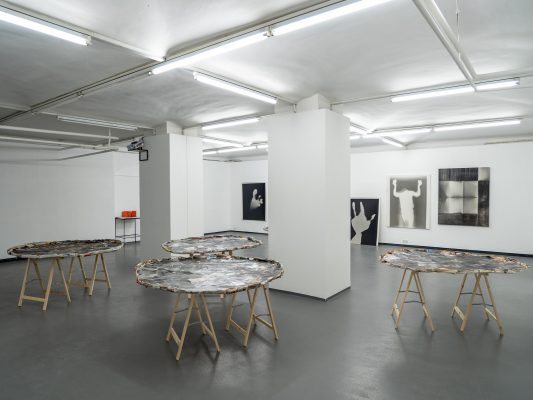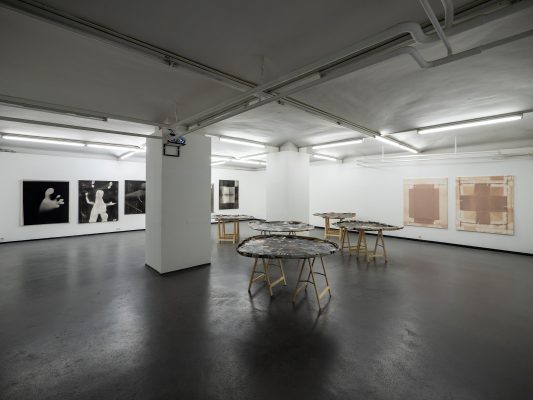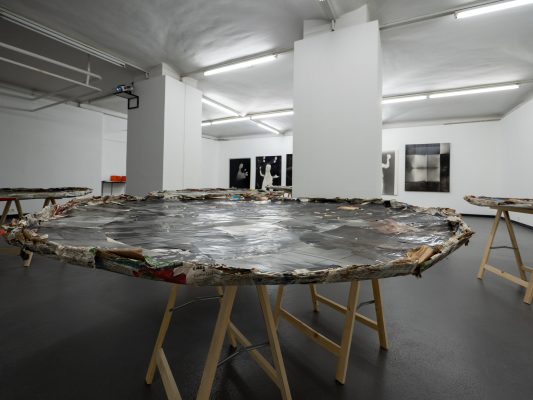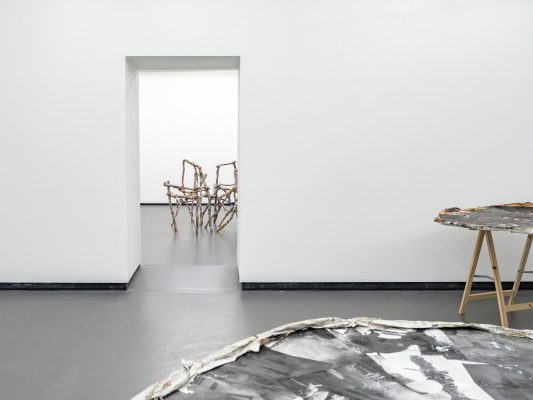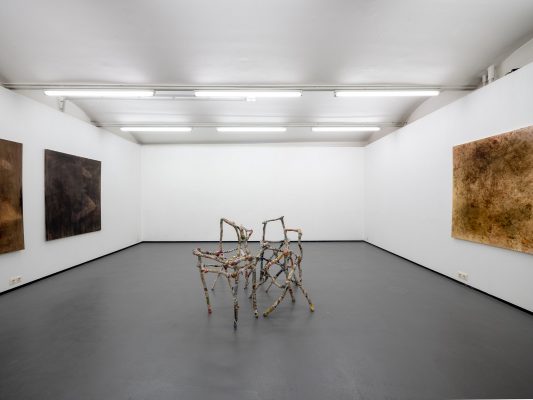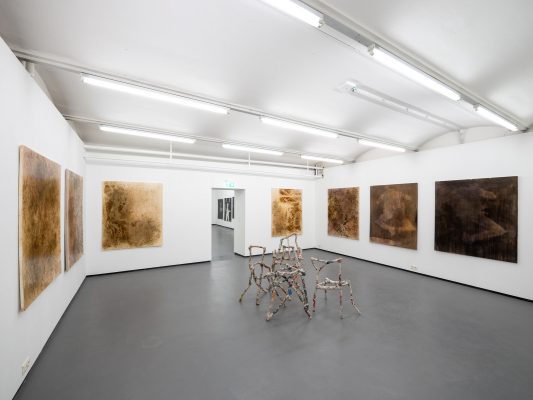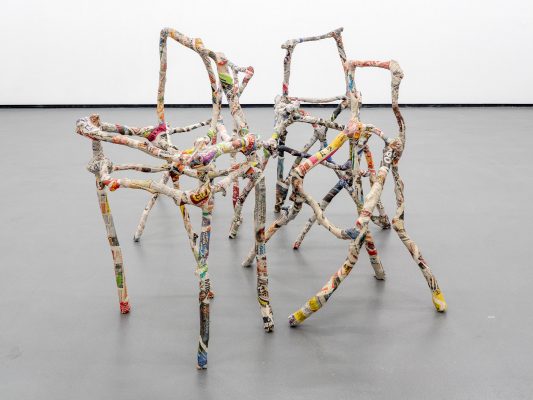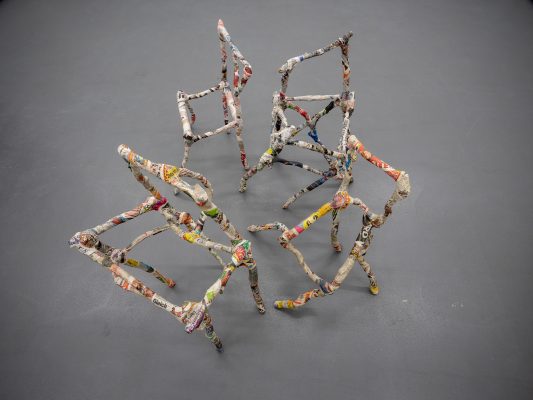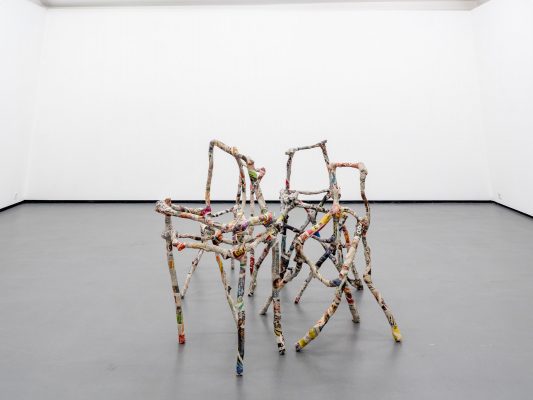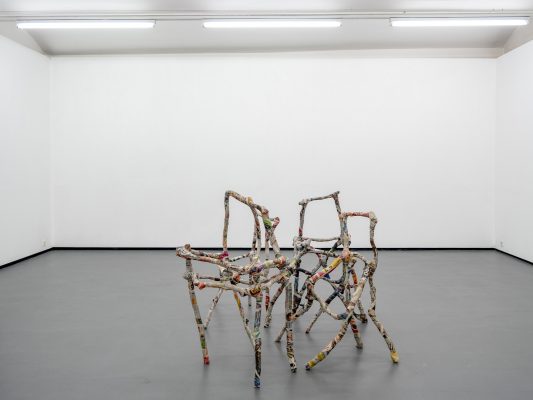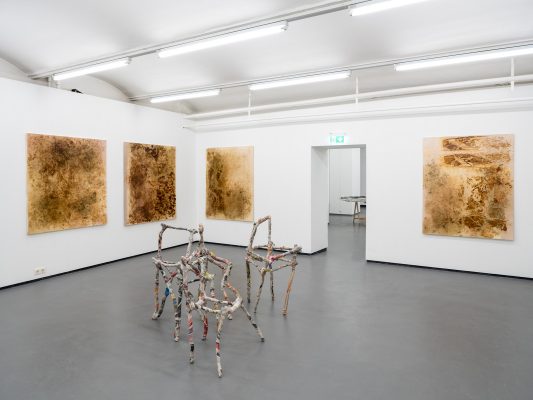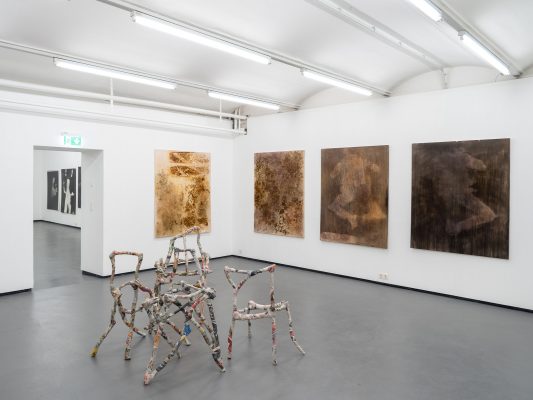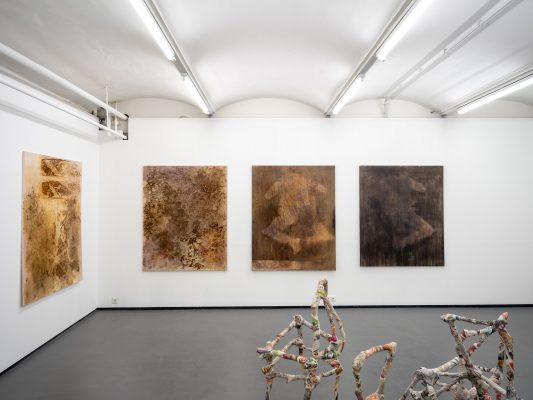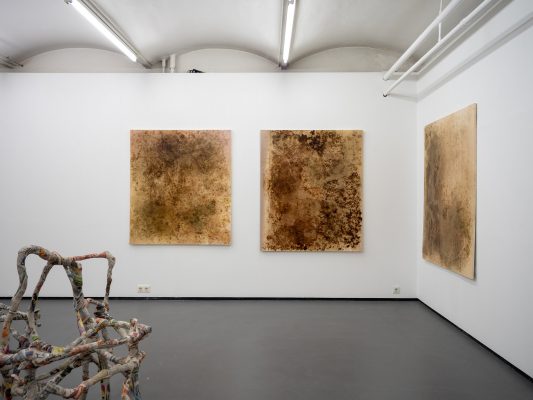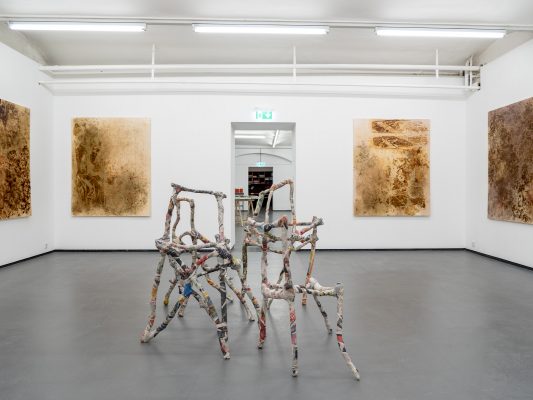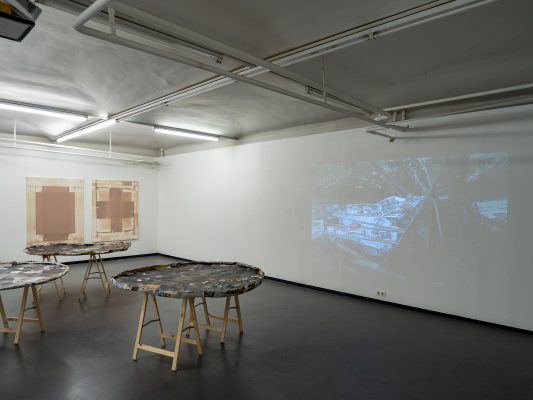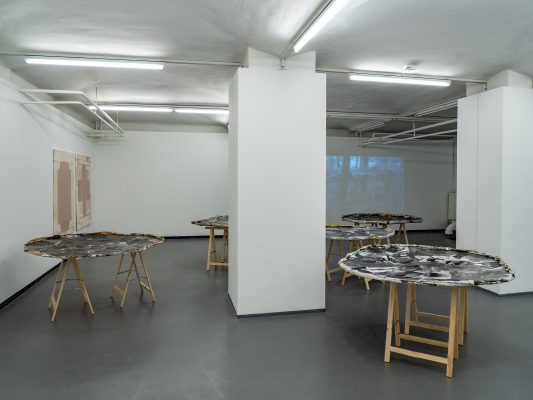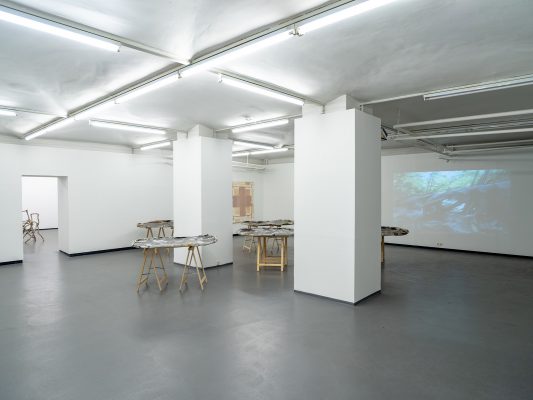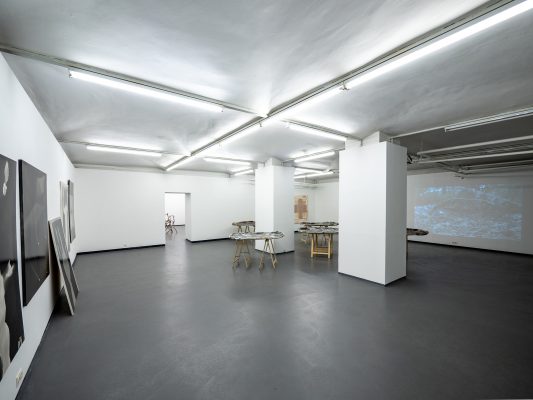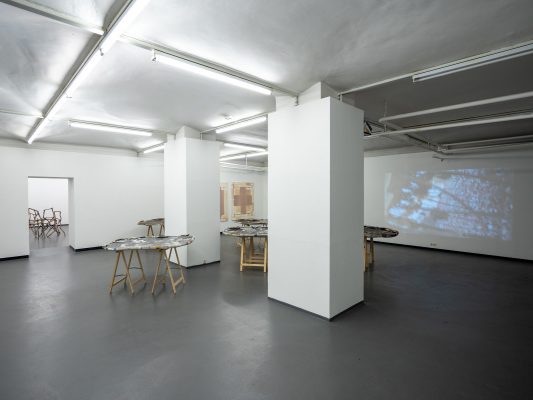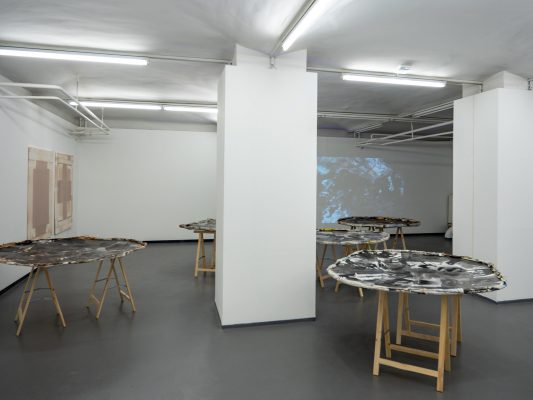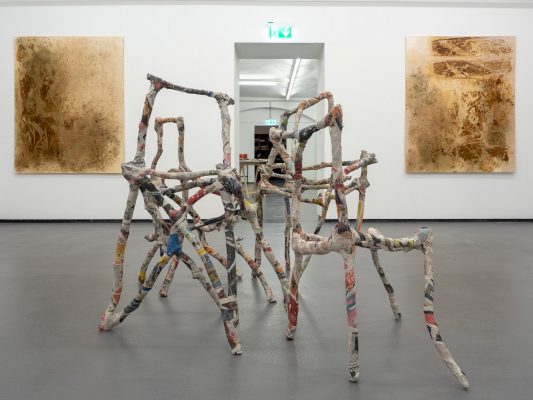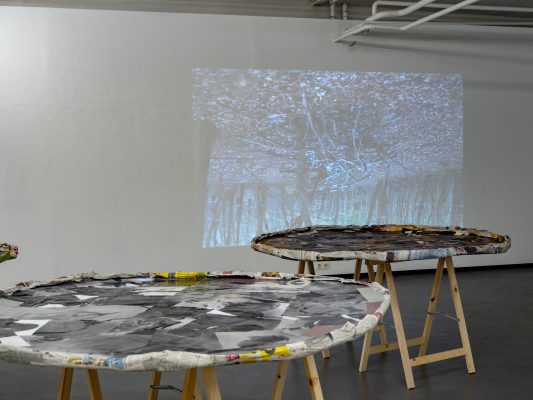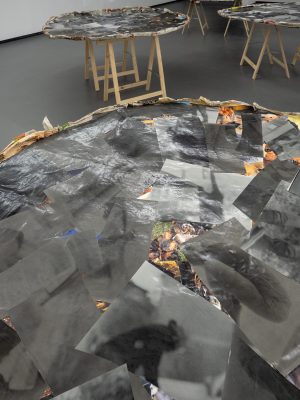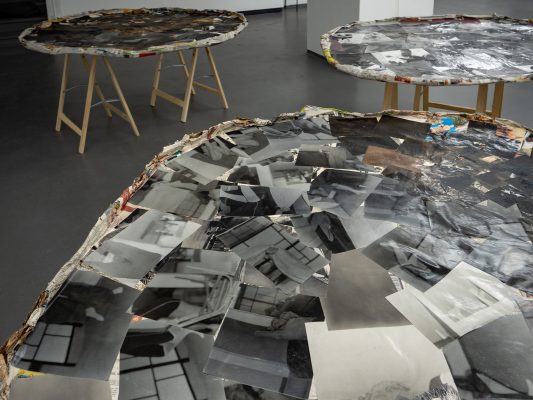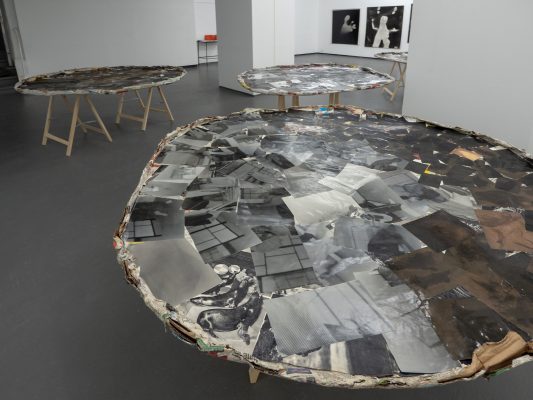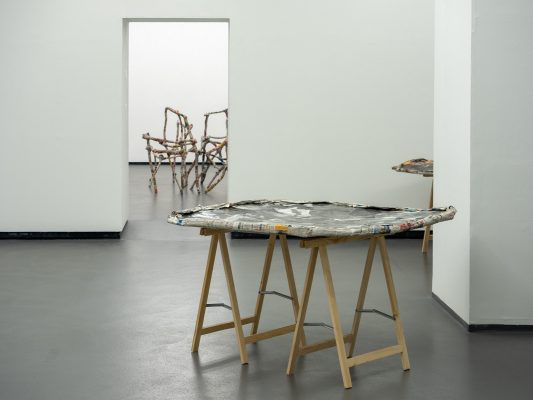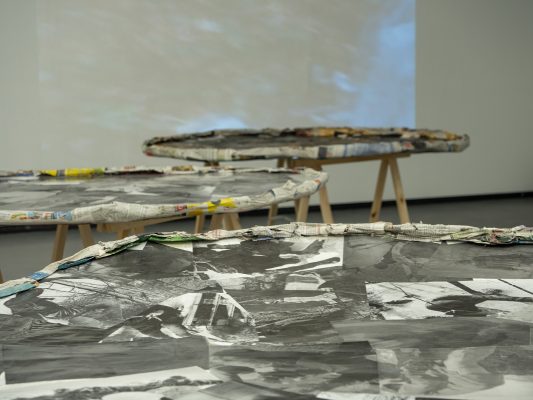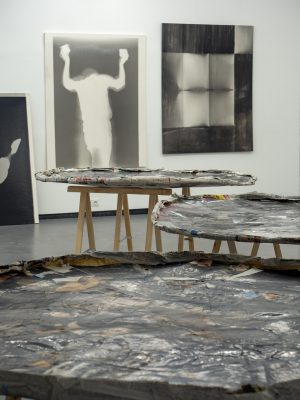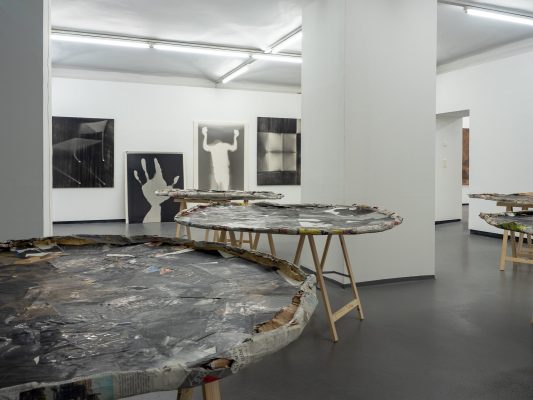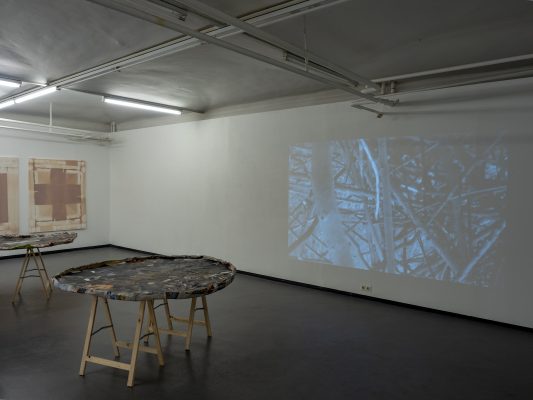Opening: Monday, 14 October, 7 p.m.
19.30–20.30 Uhr: speed dating – meet the artist – ask a question
Finissage & image exchange– bring & take:
Thursday, 14 November, 7 p.m.
sponsored by: BKA Österreich; MA7-Kultur; Cyberlab
The WERKSCHAU of Michaela Moscouw who was born and lives in Vienna and practices photo, video and installation art is called from the junk yard of photography. The term, “junk” refers to her approach. In contradistinction to a process of producing and archiving “valuable” artworks, she prefers to reuse and rearticulate Arte Povera materials and older photo works. “Junk images” have just as much right to exist as “good pictures”, says Moscouw. With this in mind she uses unorthodox methods of image creation by consciously employing faulty, cheap and easily available material along with cheap equipment. She is happy to incorporate accidental stains and distances herself from the “perfect” presentation. This allows her to give ugliness a forum.
Again and again during the years of her art practice, Michaela Moscouw has contested conventional injunctions and expectations, consciously seeking out borders and infracting them. This also applies to her obsessive methods of working under often extreme circumstances that are frequently in external public space. She created work in which disappearance and disintegration is inherent and its destruction seemed as an apperently consistent result for the artist.
The uncut, black-and-white video, Kooijen, is made of intentionally poor-quality image material. In it, she records how huts she had built in the woods from natural materials and newspapers were left to the vagaries of nature and slowly disappeared.
Photograms, as direct traces of real life always show the loss of something that is no longer there. This most rapid and direct way of producing images comes very close to Moscouw’s ideal. Her very early, large-format, black and white photograms (1997–2000) of hands, feet, a chair or folded paper appear unreal, associating with ghosts.
The basis of a further photogram series is of furniture and objects from her Vienna flat where she has lived for a long time. Using long exposure times and daylight created strange pink hues. In keeping with her belief that no picture is sacrosanct, Moscouw has worked on these images for the exhibition with plant-based chemicals that create blotches so that the original images are rendered invisible. Distributed throughout the room there are trestles with so-called Pizzas. Having a diameter of 160cm, these circular cardboard cut-outs have been worked on “carelessly”. They are collages of various pictorial materials some of which come from the book Wien und ein Blick in die Alpengaue from 1941, allowing Moscouw to incorporate a sarcastic and political component. By layering the picture material and thus the ambiguous visual message this provokes, she arrives once again in the domain of invisibility, disappearance.
Most of all she produces emptiness which is not to be understood as “nothing” but as a free space which viewers must fill for themselves.
Petra Noll-Hammerstiel, for the collective
